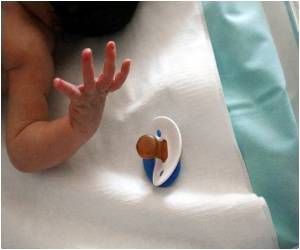
For the study, entitled Induction of Labor Versus Expectant Management in Women with Preterm Prelabor Rupture of Membranes Between 34 and 37 Weeks– the PPROMEXIL-2 trial, van der Ham and his colleagues observed 536 women from January 2007 until September 2009, and 195 women from December 2009 until January 2011. The study was performed in a multicenter setting within the Dutch obstetric research consortium, in which 60 hospitals in the Netherlands collaborated. After 24 hours of ruptured membranes, patients were allocated to either immediate delivery or expectant management until 37 weeks of gestational age.
The results indicate that: expectant management prolonged pregnancy for 3.5 days; the risk for neonatal sepsis (infection of the newborn) overall was low (3.6%) and did not differ between treatment strategies; the risk for respiratory distress syndrome (breathing problems of the newborn) did not differ between treatment strategies; and caesarean section rates were equal in both treatment strategies. Combined with results of all previous published trials there was no difference in the identified risks.
In addition to van der Ham, the study was conducted by Jantien van der Heijden and Hans van Beek, VieCuri Medical Center, Obstetrics & Gynecology, Venlo, Netherlands; Brent Opmeer, Academic Medical Center, Clinical Epidemiology, Biostatistics and Bioinformatics, Amsterdam, Netherlands; Christine Willekes and Jan Nijhuis, Maastricht University Medical Center, Obstetrics & Gynecology, GROW School for Oncology and Developmental Biology, Maastricht, Netherlands; Twan Mulder, Maastricht University Medical Center, Pediatrics, Maastricht, Netherlands; Rob Moonen, Atrium Medical Center, Pediatrics, Heerlen, Netherlands; Marielle van Pampus, University Medical Center Groningen, Obstetrics and Gynecology, Groningen, Netherlands; Mariet Groenewout, University Medical Center Groningen, Obstetrics & Gynecology, Groningen, Netherlands; Gerald Mantel, Isala klinieken, Obstetrics & Gynecology, Zwolle, Netherlands; Anneke Kwee, Dutch consortium AMPHIA trial, Netherlands; Hajo Wildschut, Erasmus Medical Center, Obstetrics & Gynecology, Rotterdam, Netherlands; Bettina Akerboom, Albert Schweitzer Hospital, Obstetrics and Gynecology, Dordrecht, Netherlands; and Ben Mol, Academic Medical Center, Department of Obstetrics and Gynaecology, Amsterdam, Netherlands.
Source-Eurekalert













